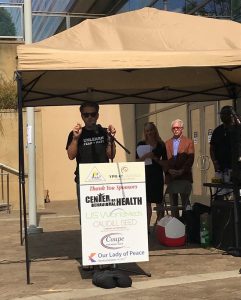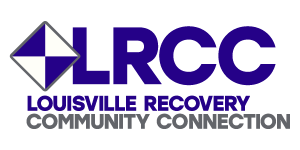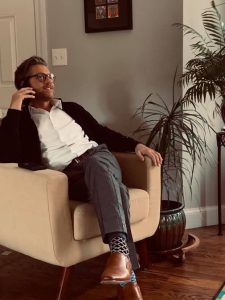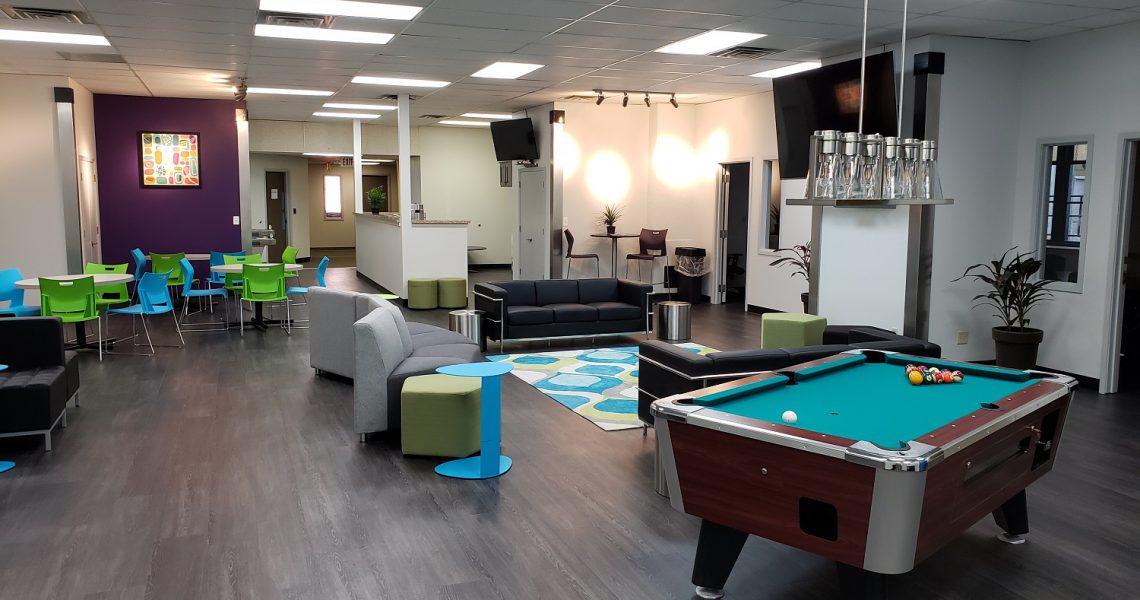The Recovery Movement: Claiming Our Space and Our Story
December 4, 2020 By Jeremy M. Byard
By Jeremy M. Byard
Executive Director, Louisville Recovery Community Connection (LRCC)
http://louisvillerecoveryconnection.org
jeremy.byard@lrccmail.org
Over the past decade a powerful recovery movement has continued to gain momentum as more and more people all across this country-from every background and socioeconomic status-courageously step away from fear and into their rightful place in their communities-claiming space, having their voices heard and weaponizing their journeys in the important fight against discrimination. Their stories of transformation, struggle, and most importantly—resilience—have created a beautiful patchwork quilt representing the actual experiences of real people. And more spaces exist today than at any other time in history built upon recovery-oriented principles specifically for people to experience recovery together, have fun, engage in activism and advocacy and stay connected to one another. Recovery Community Organizations (RCOs), recovery cafes and coffee shops, and even digital recovery platforms are now a reality. We are here. The revolution is here. And we are the revolution.

The revolution is here. And we are the revolution.
But there’s another reason why story is so important here. It’s arguably the thread by which our existence as human beings are tethered. It is how we relate to ourselves and to the world around us. It’s how we make meaning of our experiences, how we learn and grow. Passed down through our cultures and in our connections to each other, story is the vehicle by which we access certain universal truths about our reality, who we are and how we came to be. When we have no story, or worse, we do not feel that there is a space for our story to exist and be shared, the consequences can be dire for both the individual as well as the collective. That is why it is vital to also highlight the many diverse pathways of and to recovery, no longer allowing the abstinence only narrative to dominate these spaces and promote itself as the only true way to experience recovery. Our communities are paved with so many avenues-natural recovery, medication-assisted recovery, faith-based recovery, paths through Buddhism, paths through formalized treatment or no treatment at all, harm reduction, all of which must be celebrated if they have made it possible for an individual or family the opportunity to live a life of meaning, of health, of joy. In fact, Bill Wilson himself shared this sentiment in a 1944 edition of the AA publication Grapevine. He writes, “shall we reflect that the roads to recovery are many; that any story or theory of recovery from one who has trod the highway is bound to contain must truth.” Wilson and a man name Phillip Wylie to whom he was responding in writing the statement both received significant blowback at the time from the recovery community for these comments, but they understood this universal truth that everyone’s experience holds truth and value.

The LRCC features state-of-the art facilities with great spacing for meetings and training seminars.
 JOIN THE DISCUSSION
JOIN THE DISCUSSION
Add your thoughts about The Recovery Movement: Claiming Our Space and Our Story by submitting your comments in the reply box below. All comments are moderated prior to being posted on the web site. Thank you.
ABOUT LOUISVILLE RECOVERY COMMUNITY CONNECTION
The LRCC is located at 620 South 3rd Street in downtown Louisville, KY on the first floor of The Gramercy Building. Contact them by phone at (502) 717-8321 or email at LouisvilleRecoveryConnection@gmail.com. Learn more at louisvillerecoveryconnection.org.
 ABOUT THE AUTHOR
ABOUT THE AUTHOR
Byard is a passionate advocate devoted to ensuring all individuals with substance use disorders have access to high quality, evidence-based prevention, treatment, and recovery services and is a leader in the broader U.S. Recovery Movement. A veteran and small business owner, Byard came to the field of addiction treatment from the private sector and has since lead a division of peer support specialists at a national non-profit, created that organization’s first division of supported employment for individuals in recovery, and founded Louisville, KY’s first Recovery Community Organization, the Louisville Recovery Community Connection (LRCC) where he still oversees operations as the CEO. Byard is a member of the Motivational Interviewing Network of Trainers and has expertise in building Recovery-Oriented Systems of Care, implementation of evidence-based interventions, legislative advocacy, arts-based, participatory methodologies for community-based activism and research, and organizational leadership.
SUBMIT A GUEST BLOG
Are you interested in writing a guest blog for The Recovery Word? Click here for additional information.
